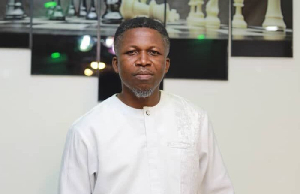The Minister for Trade and Industry of Ghana, Dr. Ekwow Spio-Garbrah has told a summit conference on Higher Education in Africa that the content of the Continent’s educational system needs radical overhauling if African University graduates are to more readily find employment.
Dr. Spio-Garbrah was speaking in Dakar, Senegal, at the three-day African Higher Education Summit, attended by some 800 ministers, ambassadors, university vice chancellors and professors, educational planners, as well as officials of major multilateral and bilateral institutions and non-governmental organizations.
Opened by Senegal’s President, Macky Sall, and attended by AU Commission President, Dr Nkosazana Dlamini Zuma, the Summit also received a keynote address from the UN Secretary-General.
In a thought-provoking remark on the subject of -“Business, Higher Education and Employability”, Ghana’s Trade and Industry Minister challenged anyone in the large audience of highly qualified academics from around the world, who were not metallurgists to raise their hands if they knew how various grades of rocks were processed and refined into gold.
Two people raised their hands. He then asked how many in the distinguished audience who were not agronomists but could write a one-page summary paper on how cocoa seeds became seedlings, were planted as trees, were harvested as cocoa pods and processed into chocolates. No hands went up.
Dr. Spio-Garbrah then informed the audience that this vacuum in relevant practical knowledge was because the education most African intellectuals and professionals, including himself received were totally unrelated to the natural resources around them and the fundamentals of their country’s economic production.
He stated that the same general ignorance applied to simple processes such as the conversion of tomatoes into paste, cassava into starch, or cotton into textiles.
The former Education Minister was of the view that until African countries got help from their own industrialists to change the curricula of their schools, especially in the secondary and tertiary sector, Africa will continue to produce graduates who will find a hard time finding jobs or starting their own businesses.
He disclosed that having been Minister of Education and now working as Minister of Trade and Industry, he had become keenly aware of the total disconnect between what most African economies need and the knowledge content of graduates most African schools and colleges were producing.
He stated that a three-way consultation needs to be held urgently between governments, industry and academia to introduce a whole new set of relevant knowledge into the education curriculum, to ensure that graduates could become more employable or could begin their own businesses.
Dr Spio-Garbrah informed the august gathering that while governments, academia and the private sector could do a lot to bridge the yawning knowledge gap that made many graduates unemployable, there was a role for non-governmental organisations, such as the African Business Centre for Developing Education (ABCDE).
He said organisations like ABCDE could be among agencies that could initiate and manage a range of programmes to bring professionals and industrialists into classroom to help change the limited range of knowledge content most students are exposed to.
Through internships, attachments, career counseling and guidance, industrial days, excursions, mentorships and other interventions, it was possible for entities such as ABCDE to bring the world of business and industry closer to classrooms, Dr Spio-Garbrah urged.
General News of Friday, 20 March 2015
Source: The Chronicle













